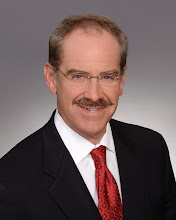Over the last few years we have been very busy building a successful practice. In addition, I have been teaching at the graduate level, course work in healthcare management. Combining the two has yielded a constant source of new ideas and innovations that we propose will move our clients toward the higher aim of improvement - both fiscally and operationally. That is our guiding principle at InterOPERANT.
As an example, please read this recent article:
"Integrated care can cut hospital admissions for elderly patients by at least one-fifth, according to a new report from RAND Europe, Ernst & Young, University of Cambridge and the Nuffield Trust.
Researchers studied integrated care pilots in the U.K., two-year initiatives that explored ways of providing health and social care services to improve the health and wellbeing of seniors and patients with long-term conditions, dementia and other mental health problems or substance misuse. Most of the pilots were horizontally integrated, such as community-based services like general practices, community nursing services and social services, rather than vertically integrated with primary care and secondary care.
In instances where case managers coordinated care for senior patients at risk for hospital admission, outpatient visits dropped 22 percent and planned admissions dropped 21 percent, leading to a 9 percent decrease in costs, Health Investor reported.
"It is possible to reduce [utilization] and associated costs of hospital care, but it seems to be very hard to reduce emergency admissions," authors wrote in the report. Although they did see reductions in planned admissions and outpatient attendance, researchers found no evidence of cutting emergency admissions.
Staff also reported better patient care. More than half of the staff (54 percent) thought patient care improved compared to the previous year; only 1 percent thought it had got worse, according to the summary brief. Most of the improvements stemmed from process-related changes, such as using care plans more and new roles for staff.
Patients, however, didn't really notice a difference in improved care. In fact, 15 percent fewer patients reported feeling that their opinions and preferences were taken into account by social services or their care workers. Five percent fewer patients said they felt involved by their doctors in decisions about their care, and 9 percent fewer patients felt they were able to see the nurse of their choice.
"We believe that the lack of improvement in patient experience was partly due to professional rather than user-driven change, partly because it was too early to identify impact within the timescale of the pilots, and partly because, despite having project management skills and effective leadership, some pilots found the complex changes they set for themselves were hard to deliver than anticipated," authors wrote."
Read more: Integrated care cuts hospital admissions by a fifth - FierceHealthcare http://www.fiercehealthcare.com/story/integrated-care-cuts-hospital-admissions-fifth/2012-03-26?utm_medium=rss&utm_source=rss#ixzz1qQnjfhSp
Subscribe: http://www.fiercehealthcare.com/signup?sourceform=Viral-Tynt-FierceHealthcare-FierceHealthcare"
Ok, but how do we improve our revenue streams?
We believe that cutting inappropriate admissions is very important but only part of the answer. The other side of the equation is to improve throughput, and decrease the cost of the admission - eliminate the waste. Under this scenario admissions could actually increase by freeing up "virtual beds" already in your system.
For more perspectives on this, please contact us and we will happily meet with you.
Best,
Don Lyons
